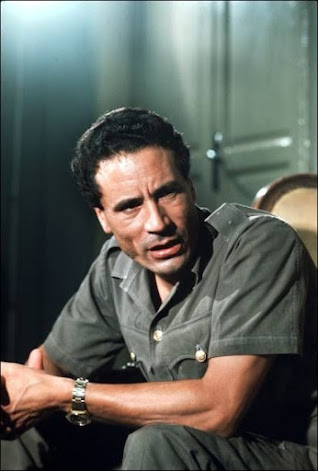"Americans are good people. They have no aggressions against us and they like us as we like them. They must know I don't hate them. I love them.… I hear it is a complex society inside. Many Americans don't know about the outside world. The majority have no concern and no information about other people. They could not even find Africa on a map. I think Americans are good, but America will be taken over and destroyed from the inside by the Zionist lobby. The Americans do not see this. They are getting decadent. Zionists will use this to destroy them." ~ Muammar Gaddafi
Economic policies of Libya under Gaddafi
Nationalization of the oil sector
Shortly after taking power, Gaddafi took control of the oil industry from foreign companies and nationalized it. This move allowed the Libyan government to gain significant revenue, which was redistributed to improve public services such as healthcare, education, and housing.
Agricultural reforms
Gaddafi launched land reform policies aimed at breaking up large privately-owned estates and redistributing the land to the landless and poor. This was part of a broader initiative to promote self-sufficiency in food production and to weaken the power of the traditional elite who owned much of the country's arable land.
Economic diversification
Efforts were made to diversify the economy away from heavy reliance on oil by developing other sectors like agriculture, manufacturing, and tourism.
Housing and infrastructure development
One of Gaddafi's most notable policies was the declaration that housing is a basic human right. His government embarked on extensive construction of new housing units and infrastructure projects to improve living conditions and modernize the country's infrastructure.
Education
Education was made free at all levels, from primary school to higher education. This policy was aimed at ensuring that every Libyan had access to education regardless of their background. There was a particular emphasis on female education, which Gaddafi promoted as part of his broader agenda to empower women and promote gender equality in Libyan society. Gaddafi's regime also expanded technical and vocational education programs. These were designed to align with Libya's economic diversification efforts and reduce foreign labor dependency.
Healthcare
Healthcare services were provided free of charge to all citizens. This included everything from routine check-ups to complex surgeries and was part of a broader vision to improve the general welfare of the population. The government invested heavily in healthcare infrastructure, building hospitals, clinics, and other healthcare facilities across the country.
Following the take down of Gaddafi and his government by the US-NATO orchestrated civil war, people from across the African continent were being sold as slaves from the broken Libya.

No comments:
Post a Comment